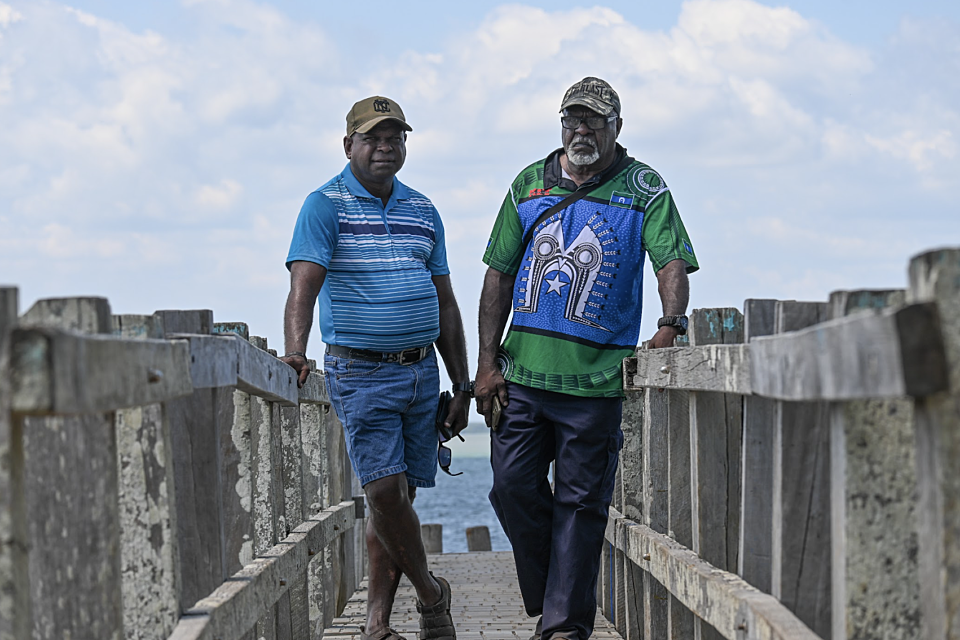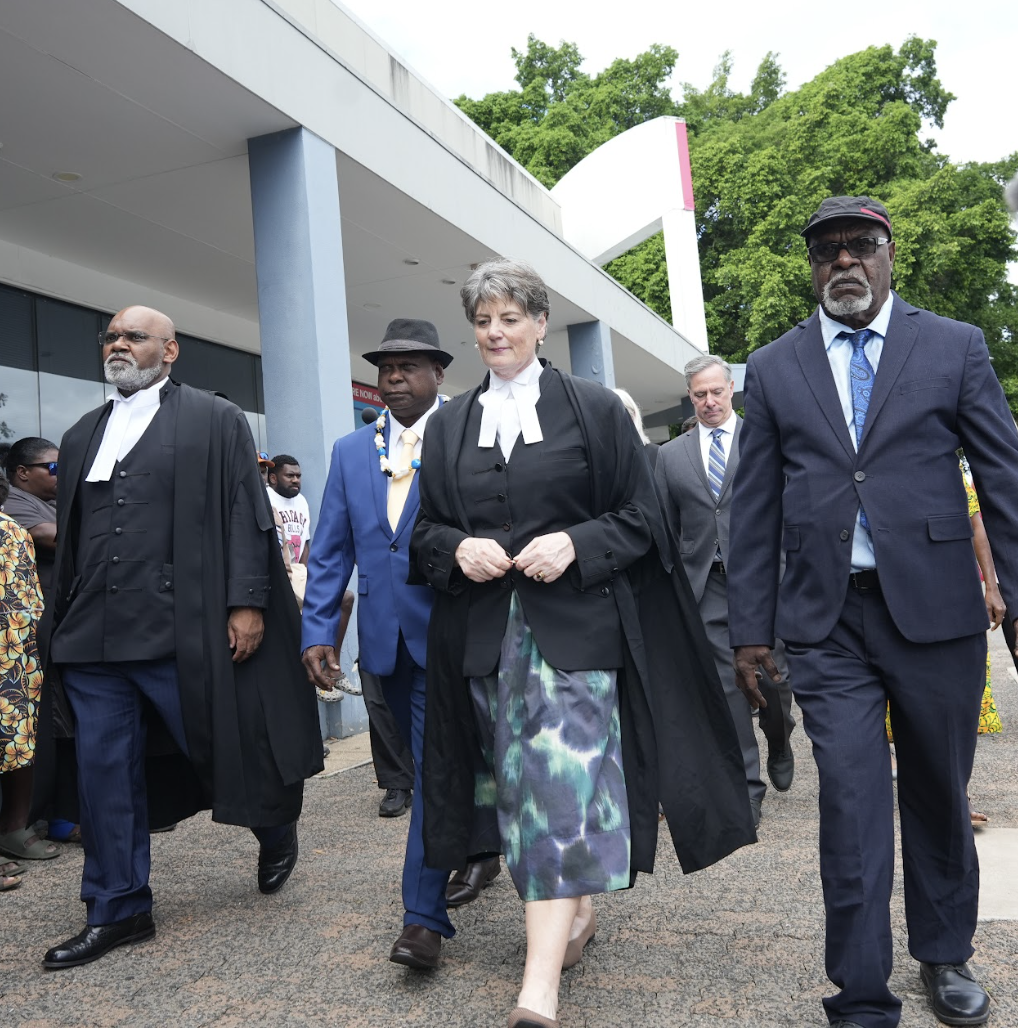
What not-for-profit leaders need to know in 2026
Posted on 12 Feb 2026
Our special NFP trends report distils the views of more than two dozen experts.
Posted on 16 Jul 2025
By Nick Place, journalist, Institute of Community Directors Australia

Financial backers of two Torres Strait Islander Elders who took the Australian government to court over inaction on climate change say the result is important even though the Elders lost the case on a point of law.
Leading Australian philanthropists, lawyers and supporters who backed the “Climate Case”, providing funding and support to Elders Uncle Pabai and Uncle Paul, said the Federal Court judgment by Justice Michael Wigney had shone a light on the very real effects of climate change, and the failure of the Australian government (especially the previous government) to honour commitments to the Paris Agreement or to acknowledge the science.
“The Federal Court found that while the Torres Strait Islands, people and culture are being ‘ravaged by human induced climate change’ and that climate change poses ‘an existential threat to the whole of humanity’, the Australian Government does not ‘currently’ have a legal duty of care to protect Torres Strait people from climate harm,” said a statement from the Grata Fund and law firm Phi Finney McDonald, who worked pro bono on the case.
In a striking judgment, Justice Wigney made it clear he harboured considerable sympathy for the plight of the Elders and their people. He said their evidence clearly showed that the previous federal government’s emission targets were not based on science.
The problem was in the law. Justice Wigney said he was bound by legal definitions and by the fact that the reasonableness of a government’s conduct was ordinarily decided by political processes, not judges.
“The law of negligence, by which I’m clearly bound, establishes that governmental conduct and decisions which involve matters of high or core government policy are not properly or appropriately made the subject of common law duties of care,” he said. “The decisions involved in the setting and communication of Australia’s greenhouse gas emissions reduction targets pursuant to its international obligations or otherwise are highly political in nature and almost self-evidently involve matters of high or core government policy. They’re accordingly not properly subjected to common law duty of care of the sort alleged by the applicants.
“It was not open to me on the current state of the law in Australia to conclude otherwise.”
The Grata Fund said the Elders were committed to seeing the case through to the end and would now consider options for appeal with their legal team.

“This case has already had enormous success, it has dragged the Australian Government on country and forced it to face up to the truth of the harm they are actively and knowingly causing to Australian communities. They were forced to admit in open court that they failed to consider climate science or the harm they’re perpetuating against Australian communities in setting its climate targets,” the statement said.
Leading philanthropist Alan Schwartz said he had been hoping the case would be both a “show pony” case that would shone a light on the ramifications of the government’s inaction and the need to take more urgent action against climate change, and also a “workhorse” result that would meaningfully help Torres Strait Islanders.
He got one out of the two.
"This case has already had enormous success, it has dragged the Australian Government on country and forced it to face up to the truth of the harm they are actively and knowingly causing to Australian communities."
The founder and executive director of the Grata Fund, Isabelle Reinecke, said, “The court was not yet ready to take the step we all need it to and hold the Australian government accountable for its role in creating the climate crisis. However, the court made extraordinarily strong factual findings in agreement with Uncle Pabai and Uncle Paul, including that the Australian government knows that Torres Strait communities are being ravaged by climate change and had ‘scant if any regard’ to climate science in setting emissions reduction targets. The government is continuing to make choices, open-eyed, to prioritise the vested interests of fossil fuel companies and political donations over the people it is supposed to serve.
“The government didn’t see this case coming and they never thought people would have the determination and bravery to see it through. By bringing this case and seeing it through, the Uncles have rattled the major political parties and Australian government that think they can continue to fuel the climate crisis with impunity.”
Uncle Paul Kabai said after the decision, “Mr Albanese and his expensive government lawyers will stand up and walk away just like they walk out the door of this court today. They go home and sleep soundly in their expensive beds. We go back to our islands and the deepest pain imaginable.
“I want to ask Mr Albanese what I should say when I go home to my family. How do I tell them we have less than 30 years left? I can feel the moral burden on my shoulders. Sometimes when I’m alone I feel the heaviness of the burden and it is not mine to carry. The prime minister should be carrying this for the people. That’s his job.”
Uncle Pabai Pabi said the case went beyond the Torres Strait Islands.
“We are cultural people, our ancestors, I’ve got a two-year-old son, he’s my main focus – this is why I’m doing this,” he said. “For the love of my son and for all the people in our community in the Torres Strait, for the bushfire and flood survivors, the farmers, kids and grandkids. I’ll keep fighting and will sit down with my lawyers and look at how we can appeal.”

Posted on 12 Feb 2026
Our special NFP trends report distils the views of more than two dozen experts.

Posted on 11 Feb 2026
The ballooning cost-of-living crisis is affecting Australian families to the extent that many…

Posted on 11 Feb 2026
Rev. Salesi Faupula is the Uniting Church’s moderator for the synod of Victoria and Tasmania. Born…

Posted on 11 Feb 2026
Service providers have expressed cautious support for the federal government’s Thriving Kids…

Posted on 11 Feb 2026
Australia’s not-for-profits need strategic investment by the federal government to support the…

Posted on 11 Feb 2026
For the first time, charities commissioner Sue Woodward has confirmed the Australian Charities and…

Posted on 11 Feb 2026
Opinions polls insist Pauline Hanson's fortunes are on the rise, but it is likely that enthusiasm…

Posted on 10 Feb 2026
As my family dropped our teenage son off at the airport in the first week of January to embark on a…

Posted on 04 Feb 2026
Last week’s announcement that women made up only one-third of recipients in the Australia Day…

Posted on 04 Feb 2026
As we move into 2026, I can’t help but think the world is wobbling a little.

Posted on 04 Feb 2026
An academic studying the phenomenon of “headline fatigue” – where news consumers tune out of…

Posted on 04 Feb 2026
In this time of escalating climate impact, the head of Australian Ethical Foundation, Kate…